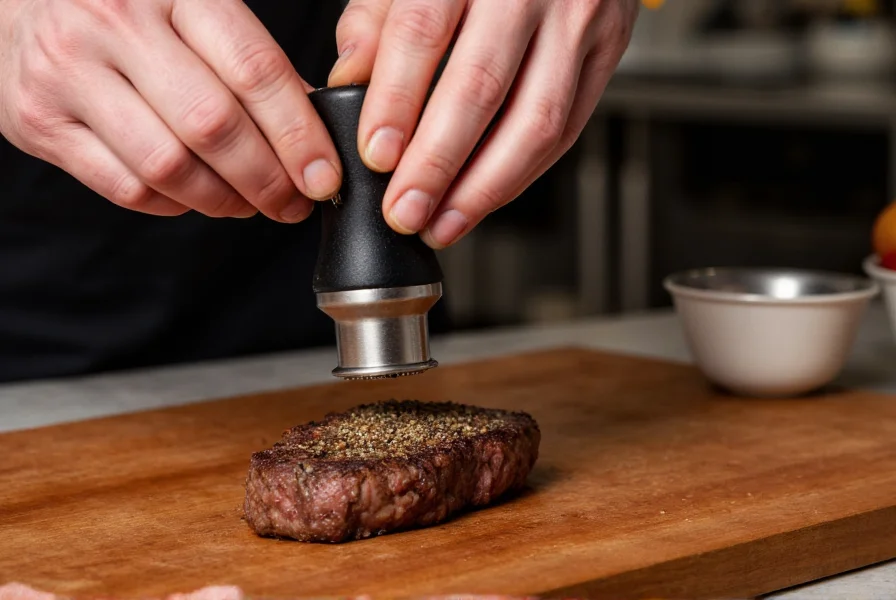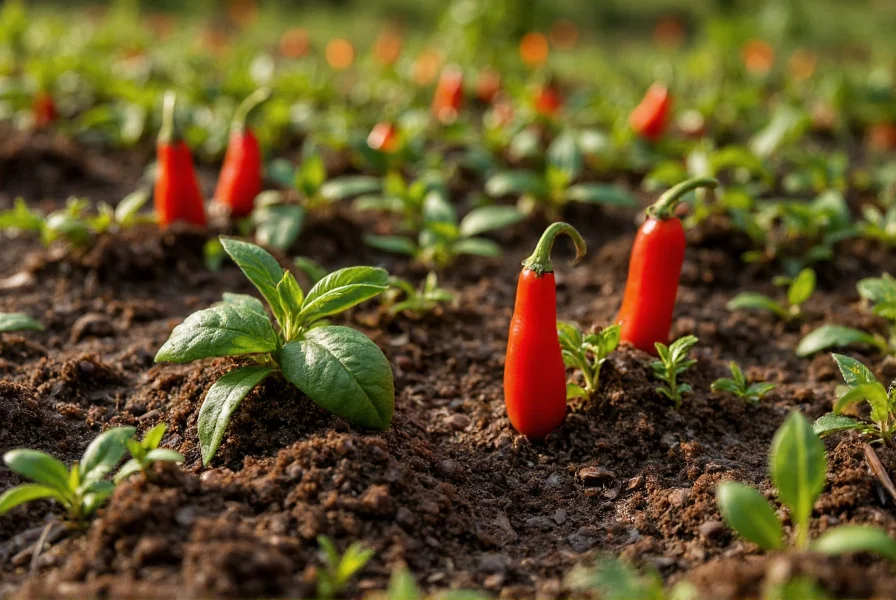When you ground pepper just before use, you unlock flavors that pre-ground alternatives simply can't match. This culinary practice transforms ordinary dishes into extraordinary experiences through the immediate release of aromatic compounds that begin deteriorating the moment peppercorns are crushed.
The Science Behind Freshly Ground Pepper
Peppercorns contain piperine and essential oils responsible for their distinctive heat and aroma. These compounds are highly volatile and start evaporating within 15 minutes of grinding. Studies show that pre-ground pepper loses up to 60% of its aromatic compounds within 24 hours, explaining why supermarket containers often deliver lackluster flavor.
When you freshly ground pepper at the table or during cooking, you're not just adding seasoning—you're activating a complex flavor profile that enhances the entire dish. The physical action of grinding ruptures cell walls, releasing these compounds at their peak potency.
Pepper Grinder Types Compared
Choosing the right tool significantly impacts your peppercorn grinding results. Each mechanism produces different particle sizes and affects flavor release:
| Grinder Type | Grind Consistency | Best For | Lifespan |
|---|---|---|---|
| Manual Ceramic Burr | Most consistent, adjustable | All culinary applications | 5-10 years |
| Stainless Steel Mill | Slightly less consistent | Daily home use | 3-7 years |
| Mortar and Pestle | Variable, textured | Specialty dishes, small batches | Indefinite |
| Electric Grinder | Fast but less precise | Large quantities | 2-5 years |
Ceramic burr grinders maintain their sharpness longer than metal counterparts and don't impart metallic flavors. For best pepper grinder for home use, look for adjustable settings that allow you to switch between coarse and fine grinds depending on your culinary needs.
Selecting Quality Peppercorns
Not all peppercorns deliver equal results when grounding pepper. Consider these factors:
- Origin matters: Tellicherry (India) offers complex notes, Lampong (Indonesia) provides bold heat, and Vietnamese pepper delivers floral undertones
- Whole vs cracked: Only purchase whole peppercorns—never pre-cracked
- Moisture content: Should feel heavy for their size (indicates oil retention)
- Storage: Buy in small quantities from high-turnover retailers
For the difference between ground pepper and freshly ground pepper, examine the color: fresh grind appears darker with visible oil sheen, while pre-ground looks uniformly light brown and dry.
Mastering the Grinding Technique
Proper peppercorn grinding techniques make a noticeable difference:
- Store peppercorns in an airtight container away from light and heat
- Fill your grinder only halfway to ensure proper grinding action
- Apply consistent, moderate pressure—too hard damages the mechanism
- Grind directly over your dish for maximum aromatic impact
- Clean your grinder every 2-3 months to prevent oil buildup
The ideal grind size depends on your application. For how to properly grind black pepper for different dishes:
- Coarse grind (10-15 twists): Perfect for steak crusts and hearty salads
- Medium grind (6-9 twists): Ideal for soups, stews, and roasted vegetables
- Fine grind (3-5 twists): Best for sauces, dressings, and delicate dishes

Common Grinding Mistakes to Avoid
Even experienced cooks make these errors when grounding pepper:
- Overfilling the grinder - reduces grinding efficiency and causes jamming
- Using old peppercorns - more than 6 months old lose significant flavor
- Grinding too early - wait until the last possible moment before serving
- Incorrect storage - never keep grinders in humid environments like near the stove
- Mixing pepper varieties - different types require different grind settings
Understanding why fresh ground pepper tastes better comes down to chemistry. The moment peppercorns break, enzymatic reactions begin that create hundreds of new flavor compounds. Pre-ground pepper has already completed these reactions before reaching your kitchen.
Storage Guidelines for Maximum Freshness
Proper storage extends the shelf life of both whole peppercorns and freshly ground pepper:
- Whole peppercorns: Store in airtight container in cool, dark place (up to 1 year)
- Freshly ground pepper: Use immediately for best results
- Never store ground pepper in the grinder long-term (causes oil buildup)
- Refrigeration degrades quality through moisture absorption
For special occasions when you need to prepare in advance, grind pepper directly into olive oil—the oil preserves the volatile compounds significantly longer than air exposure.
When Fresh Grinding Matters Most
While freshly ground pepper enhances nearly all dishes, it's particularly crucial for:
- Ceviche and other raw preparations where pepper is primary seasoning
- Cream-based sauces where subtle flavors shine
- Finishing dishes where pepper flavor remains distinct
- Delicate fish and poultry dishes requiring nuanced seasoning
For dishes with long cooking times like stews, add a small amount of freshly ground pepper at the end to revitalize the flavor profile that diminishes during prolonged heat exposure.
Frequently Asked Questions
What's the difference between 'grounding pepper' and 'ground pepper'?
'Grounding pepper' refers to the active process of grinding peppercorns, while 'ground pepper' describes the final product. The distinction matters because freshly ground pepper contains volatile compounds that begin deteriorating immediately after grinding, making the timing of the grinding process critical for maximum flavor impact.
How long does freshly ground pepper retain its flavor?
Freshly ground pepper begins losing aromatic compounds within 15 minutes, with significant degradation occurring within 2 hours. For optimal flavor, grind pepper immediately before use. Pre-ground pepper from stores typically loses 60% of its volatile compounds within 24 hours of processing, explaining its inferior taste compared to freshly ground alternatives.
Can I use a coffee grinder for peppercorns?
While possible, dedicated coffee grinders aren't ideal for peppercorns. Coffee oils can contaminate pepper flavor, and pepper's hardness can damage coffee grinder mechanisms designed for softer beans. If you must use one, dedicate it exclusively to spices and clean thoroughly between uses. A dedicated pepper grinder with ceramic burrs provides superior results and longevity for the specific task of grinding pepper.
Why does freshly ground pepper taste hotter than pre-ground?
Freshly ground pepper releases piperine and essential oils at their peak concentration. These compounds begin evaporating immediately after grinding, so pre-ground pepper has significantly reduced volatile compounds. The heat sensation comes primarily from piperine, which degrades over time, making freshly ground pepper taste noticeably more pungent and complex than older pre-ground alternatives.











 浙公网安备
33010002000092号
浙公网安备
33010002000092号 浙B2-20120091-4
浙B2-20120091-4